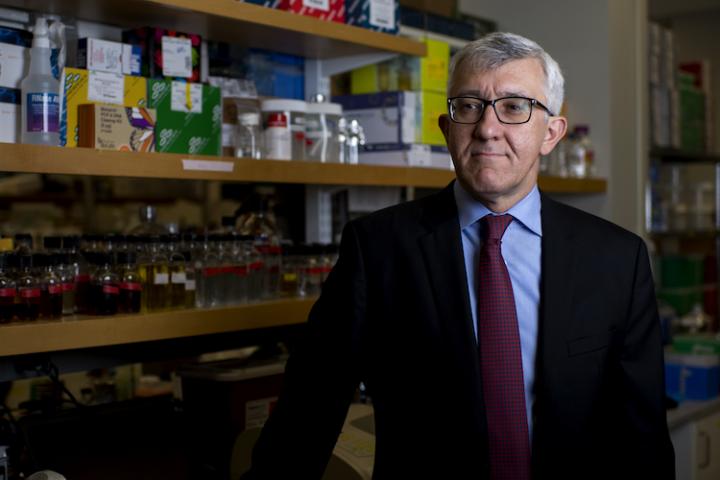
Credit: Photo by Matthew Modoono
Periodontal disease, also known as gum disease, is a serious infection that affects nearly 50 percent of Americans aged 30 years and older. If left unchecked, periodontal disease can destroy the jawbone and lead to tooth loss. The disease is also associated with higher risk of diabetes and cardiovascular disease.
The current treatment for periodontal disease involves opening the infected gum flaps and adding bone grafts to strengthen the teeth. But in new research published recently in the journal Frontiers in Immunology, Forsyth Institute scientists have discovered that a specific type of molecule may stimulate stem cells to regenerate, reversing the inflammation caused by periodontal disease. This finding could lead to the development of new therapeutics to treat a variety of systemic diseases that are characterized by inflammation in the body.
For the study, Dr. Alpdogan Kantarci, his PhD student Dr. Emmanuel Albuquerque, and their team removed stem cells from previously extracted wisdom teeth and placed the stem cells onto petri dishes. The researchers then created a simulated inflammatory periodontal disease environment in the petri dishes. Next, they added two specific types of synthetic molecules called Maresin-1 and Resolvin-E1, both specialized pro-resolving lipid mediators from omega-3 fatty acids. The scientists found that Mar1 and RvE1 stimulated the stem cells to regenerate even under the inflammatory conditions.
“Both Maresin-1 and Resolvin-1 reprogrammed the cellular phenotype of the human stem cells, showing that even in response to inflammation, it is possible to boost capacity of the stem cells so they can become regenerative,” said Dr. Kantarci, Associate Member of Staff at the Forsyth Institute.
This finding is important because it allows scientists to identify the specific protein pathways involved in inflammation. Those same protein pathways are consistent across many systemic diseases, including periodontal disease, diabetes, heart disease, dementia, and obesity.
“Now that we understand how these molecules stimulate the differentiation of stem cells in different tissues and reverse inflammation at a critical point in time, the mechanism we identified could one day be used for building complex organs” said Dr. Kantarci. “There is exciting potential for reprogramming stem cells to focus on building tissues.”
###
Media Contact
Alexandra Nicodemo
[email protected]
Original Source
https:/
Related Journal Article
http://dx.




